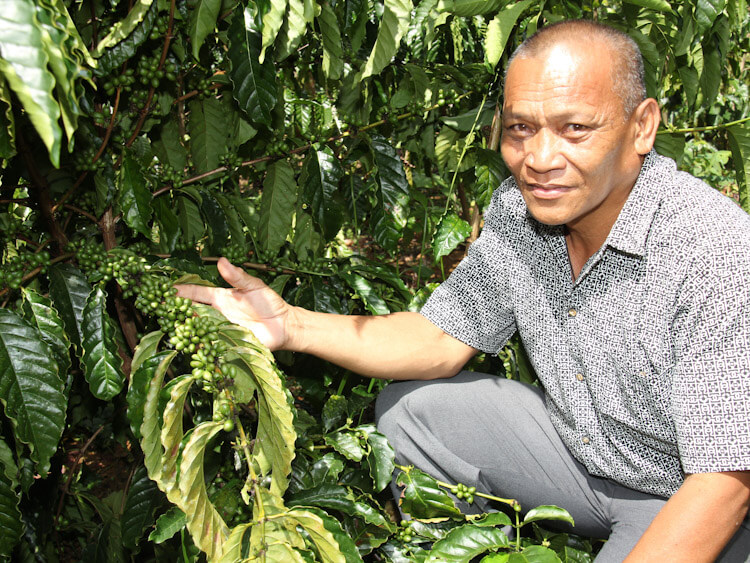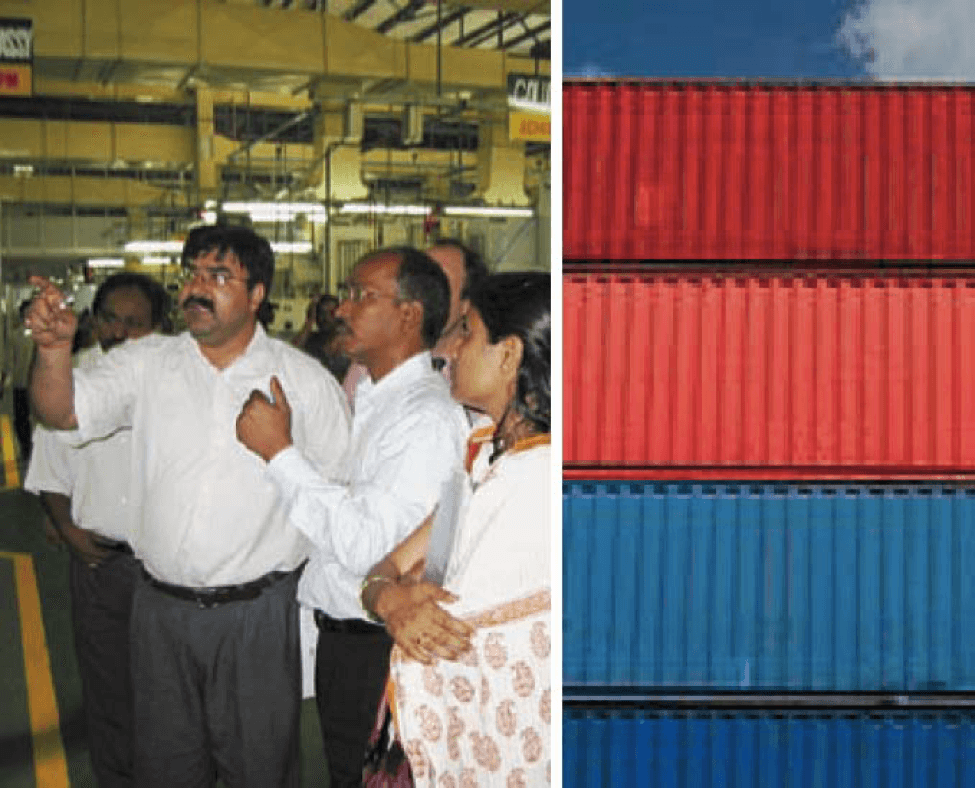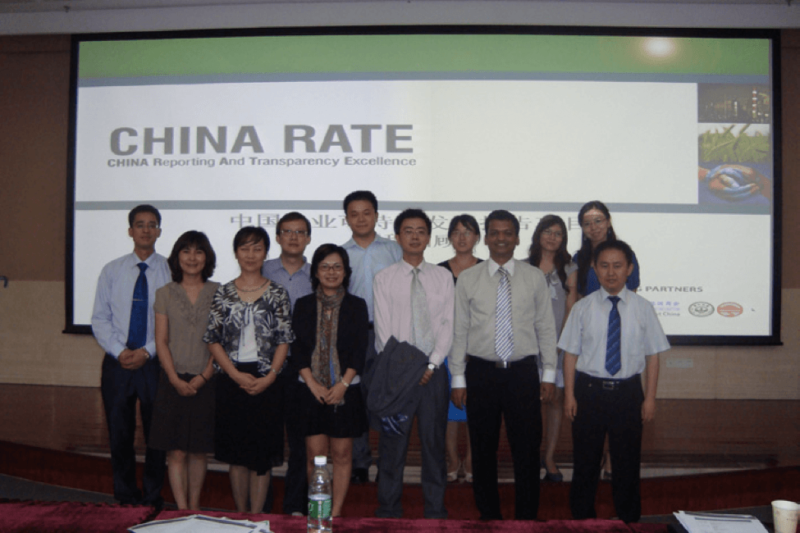Organized by the World Economic Forum’s Grow Asia Partnership, The Australian Department of Foreign Affairs and Trade, Australia’s Food Systems Innovation (FSI) Initiative, the Seas of Change Initiative and the Global Donor Platform for Rural Development, this event outlined how to transform good intentions in the agribusiness sector into practice.
This event brought together the numerous people to share key approaches and explore practical and innovative solutions to the growing, inclusive agribusinesses in SE Asia. It continued efforts to build an active, regional network of strategic stakeholders for continued exchange and innovation. It also identified opportunities for investment in agricultural development, critical areas for future research and the policy requirements to drive greater business-led inclusive growth.
In Asia, Cambodia has exhibited one of the highest rates of diminishing forest cover due to several drivers of degradation such as unsustainable and illegal logging. While consuming its forest resources not only for local use but for export to Vietnam, China and Laos, woods and timber extraction have been prevalent even in the protected areas. ASSIST together with Bureau Veritas and DEG launched PRO-FOREST – a project that aims to promote sustainable forest management and minimizing further socio-economic and environmental impact, through demonstration of FM concepts, principles and techniques.
The project carried out stakeholder awareness and capacity building events on sustainable FM systems and demonstrated compliance with regulatory requirements as well as preparation for Forest Stewardship Council (FSC)-FM Certification. Local consultants and auditors’ training and gap assessments were launched with learnings showcased during the best practices forum.
As a result of the project’s actions, collaboration with local communities and stakeholders was established. Knowledge transfer was effectively organized and representatives of local communities, experts, and local auditors were trained to implement the FSC certification schemes in Cambodia. In order to ensure project sustainability, forest owners and managers were trained in developing forest management plans while pilot communities were also oriented for the preparation of FSC certification.

Coffee production in the Philippines has been dwindling for the past 20 years albeit the increasing consumer demand. Driven by the rising consumption in emerging economies, as well as shifting preferences in established consumer markets, ASSIST together with Nestle and DEG, implemented CoFFEE – a project that aims to help smallholder coffee farmers boost production through the acquisition of new technologies on coffee farming.
Capitalizing on strategic geographies characterized by fertile plains, rolling terrain and hilly mountains, the project supplements the effort through promoting proper crop nutrition and integrated crop management (ICM) along with new fertilizer types in order to ensure quality produce. Strengthening farmers’ overall farm management capacity was also key to maximizing adopted technology. Trainings on farm budget and management, utilization of portable drying facilities, as well as transport of green coffee beans to buying stations were key knowledge sharing activities.
As a result, intensive training on key topics such as Nursery Establishment, Care & Maintenance and Plantation Establishment were given to the farmers. Part of the Training of Trainers (ToT) program also included hands-on training on coffee growing methods & technologies in Nestle´ Coffee Plantlet Production and Training Center (NCPPTC). 30,000 seedlings were distributed to be planted in the 25 hectare demo farm which also houses existing coffee trees.

The CII ITC Centre of Excellence for Sustainable Development (CII CESD) started “Corporate Sustainability Management in Indian Companies” – CoSMIC, an initiative to promote Corporate Sustainability Management (CSM) countrywide and across all sectors in association with GIZ.
The 3CS course, conceived as a part of the CoSMIC program, provides a comprehensive overview of business risks and opportunities, tools to use and strategic questions to consider when developing a Corporate Climate Change Strategy.
In the 1st phase of the CoSMIC project, actual training was used to educate companies. ASSIST, as a partner in the project, developed the content for training sessions including training manuals, campaign materials, references and best practice handbooks. In the 2nd phase of the project, the training was converted into e-learning modules for global outreach. The e-learning modules were uploaded in GIZ’s e-academy portal for public usage. All of the modules were SCORM Compliant to make them compliant with different platforms.
ProGED – Promotion of Green Economic Development is an initiative with the objective of helping micro, small and medium enterprises, as well as government institutions contribute to the economic development, increase awareness and gain knowledge on how to implement environmentally friendly, “climate-smart” and inclusive strategies in the tourism sector of the Philippines.
Funded by GIZ, ProGED focused on the tourism sector due to its high potential for investment and employment. ASSIST performed a series of training on Green Economic Development (GED); conducted a technical session on “Greening MSME Operations”; delivered two training modules: ‘Greening Strategies and Quantitative Benefits’ and ‘Consumption and Cost Monitoring’ and; provided experts and consultations for training delivery.
China is one of the world’s largest emitters of greenhouse gases (GHGs) and a significant contributor to global warming, owing to the rapid growth of the industrial sector. Energy efficiency measures can help in reducing air pollution and generate economic benefits—thus, making it attractive to investors and energy consumers. Creating a better basis for increasing energy efficiency would help the Chinese government meet its 2020 commitment of advancing a more environment-friendly economy.
ASSIST, together with TUV Nord and DEG, developed the ACE initiative with the aim to contribute to advancing a carbon-neutral economy. The project targeted energy-intensive enterprises in four cities in China – namely Shanghai, Tianjin, Guangzhou, and Chongqing. These four locations are among the top most industrialized cities in the country, where resource-intensive industries are concentrated.
To achieve this, the key interventions include 1) conducting a multistakeholder forum; 2) creating an awareness session to highlight the alarming levels of carbon emissions in China and the practices that companies can adopt to curb this amount; 3) developing an online assessment tool for carbon footprint calculation; 4) developing training materials; 5) conducting a Train-the-Trainer workshop; 6) identifying at least 5 carbon-intensive companies and providing technical assistance to become a Carbon Neutral Company; 7) developing a case study report and; 8) conducting a best practices forum.
The development of a Situation Analysis (SitAn) of Children’s Well Being is a key part of UNICEF’s international mandate for strengthening evidence-based policy planning and decision-making to promote human development and the fulfillment of children’s rights. In the specific context of Ho Chi Minh City in Vietnam, the SitAn would be of great importance for identifying the gaps in child rights implementation and priorities for children to inform evidence-based planning and budgeting for children through the city’s socio-economic development plan (SEDP).
To develop the SitAn, ASSIST collected primary and secondary information from provinces in Ho Chi Minh City, and data mining from existing data/information sources, including stakeholder consultations. Consultations were undertaken with key stakeholders, including children, in Ho Chi Minh City before a final SitAn report was submitted to UNICEF.
The collected lessons learned and good practices of Ho Chi Minh City on child care and social protection will be used for possible replication in other provinces in Vietnam. Likewise, the SitAn will lay the groundwork for HCMC’s application of the Child-Friendly City approach in the coming years.

China is among the top three countries in the world with regards to the size of its economy and success of its business. When it comes to the quality of services and products, Chinese organizations are considered world class. However, up to date one aspect of conducting business has not reached wide popularity, namely corporate sustainability reporting. The project China RATE sought to initiate the spread of corporate social and environmental reporting amongst manufacturing and service industries in China. It hoped to raise awareness and optimize the reporting procedures of Chinese companies to make their businesses more sustainable. By training organizations on issues such as transparency, environmental responsibility and international GRI guidelines, it aimed to enable them to create a better long-term approach which would lead to greater success and profits.
ASSIST, in partnership with TUV Rheinland, conducted awareness raising sessions with company CEOs, trained local companies on GRI guidelines and provided technical consultancy to selected companies on GRI implementation. The awareness raising activities targeted top decision makers to ensure company commitment to corporate sustainability reporting. Fifty participants from different companies in China attended a series of training on GRI standards, international and local standards as well as on local carbon strategies. These trainings built the local capacity of these participants to become trainers themselves and spread their knowledge among industry partners. Finally, the project gave five companies intensive consultancy on GRI guidelines and helped them with their sustainability reporting.
Global Initiatives organizes annual forums on responsible business and in 2015 held the Responsible Business Forum on Food and Agriculture in Hanoi, Vietnam. Under the theme ‘ASEAN Beyond 2015: Collaboration for Equitable Growth’, the forum convened more than 350 leaders from business, government, scientific research institutes and NGO communities, to discuss the future sustainability of aquaculture, coffee, dairy, maize, rice and tea value chains. ASSIST ran a workshop for Global Initiatives, facilitating the formulation of action points and next steps for these agriculture products.
ASSIST’s working group at this forum produced actionable recommendations for successful public-private partnerships, increasing productivity, improving rural livelihoods, reducing poverty, and reducing environmental impacts. A key highlight of the form is a dialogue with ASEAN government Ministers on sustainable agriculture and boosting productivity in Southeast Asia.




